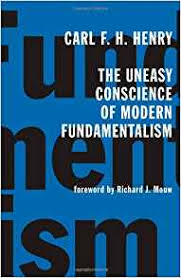What would you do if you were unjustly sentenced to house arrest in a hotel for the rest of your life? Would you be angry, bitter, depressed? Would you plot revenge on your enemies?
Continue reading “Being Human in Difficult Circumstances”
Bad Religion
Heresy has always been with us, and, as New York Times columnist Ross Douthat tells us in Bad Religion, that has not necessarily been a bad thing. Heresy can stimulate orthodoxy to clarify itself and perhaps help correct an imbalance in the church. What is different now is that heresy is no longer at the margins of an orthodox center. Today the situation is reversed.
Continue reading “Bad Religion”
Mindset and Writer’s Block
I was talking with my son Dave, an athletic director at a high school in Tucson, about sports psychology. How do you help athletes move beyond a loss or bad performance? How do you help them focus on the next match or game without being dragged down by the past?
It suddenly occurred to me that this could have parallels to writer’s block. Writers often get stuck. Something went wrong, and now they can’t seem to move forward. So I asked, “What are the best books or resources on the topic?” He suggested Mindset.
 Generally I shy away from self-help and especially positive thinking books. This book, however, does not simply say, “Think good thoughts, not bad, and all will be well.” The main proposal is more substantive and based on research that has helped not just athletes but also students, teachers, business people, parents, and writers.
Generally I shy away from self-help and especially positive thinking books. This book, however, does not simply say, “Think good thoughts, not bad, and all will be well.” The main proposal is more substantive and based on research that has helped not just athletes but also students, teachers, business people, parents, and writers.
The nub of Carol Dweck’s idea is that we often fall into one of two mindsets. The fixed mindset believes talent, ability, brains are God-given and there is nothing we can do to improve. If we are dumb or uncoordinated, we are just stuck there. If we are brilliant or talented, success should come easy. In either case, there is no point in working hard. And for both, losses can be devastating because it means I must not be talented.
The growth mindset isn’t focused on winning. It focuses on improving, on learning. The outcome is secondary. The result? Setbacks become opportunities to get better. We accept challenges so we can grow rather than avoid them for fear we will fail. Criticism isn’t a judgment on me as a person but ideas that I can learn from. Those with the growth mindset also tend to do better than those with a fixed mindset.
One of the most startling applications of this is that parents should not praise their children for who they are, how smart they are, how talented, how skilled. That instills the fixed mindset which discourages effort.
Rather, parents should praise children for how hard they try. Not for the grade but for what they learned. Not for the win, but for how they improved. In a way, this book offers the exact opposite of the self-esteem movement.
Mindset is a popularly written book with lots and lots of stories. It basically has one idea that it keeps hitting again and again. Whatever research the book is based on is way in the background. Another book on psychology, Thinking, Fast and Slow, is also filled with stories but has dozens of fascinating ideas based on research that is closer to the surface.
 In addition, Dweck seems to imply that mindset is context-free. It doesn’t matter what your circumstances, background or social setting are. The growth mindset works all the time everywhere for everyone. I would have liked more than anecdotal evidence on how this paradigm is or could be effective in underresourced communities. She does offer qualifications a few times, saying not everyone can become a Beethoven or a Michael Jordan but that all can improve. Still the breathless enthusiasm of a true believer permeates the book.
In addition, Dweck seems to imply that mindset is context-free. It doesn’t matter what your circumstances, background or social setting are. The growth mindset works all the time everywhere for everyone. I would have liked more than anecdotal evidence on how this paradigm is or could be effective in underresourced communities. She does offer qualifications a few times, saying not everyone can become a Beethoven or a Michael Jordan but that all can improve. Still the breathless enthusiasm of a true believer permeates the book.
What about writer’s block? Dweck’s work can, nonentheless, be helpful in dealing with criticism which can paralyze writers because they see it as a judgment on who they are. “Obviously, I don’t have the talent.”
When they change to the growth mindset, they saw criticism as an opportunity to improve. In essence, they thought, “Teachers and editors are just doing their job to point out errors and weakness. Now I need to do my job by improving my work.” So they did.
History More Interesting Than the Myths
Napoleon and Wellington are historically joined at the hip because of their epic encounter at Waterloo. Yet other apparent similarities are striking: both were born in the same year (1769), both were born of prominent fathers who died when the boys were in early adolescence, both had four brothers and three sisters, both spoke French as their second language, both were self-taught in military matters, both led their nations (Wellington as prime minister from 1828-30), they even shared two mistresses (though perhaps less remarkably Wellington picked them up after Napoleon’s defeat), and one of Wellington’s brothers even married the sister-in-law of the ex-wife of one of Napoleon’s brothers.
Continue reading “History More Interesting Than the Myths”
Around the World in 250 Pages
Derek Cooper’s An Introduction to World Christian History overviews two thousand years not only at 30,000 feet but at 500 miles an hour. You better not blink or you will miss a century or two.
Continue reading “Around the World in 250 Pages”
Where Have All the Fundamentalists Gone?
We used to have fundamentalist Christians, but where are they now? I rarely hear anyone refer to themselves by that label. Do you?
When many of the main denominations in the U.S. began to be influenced by liberal theological ideas in the late nineteenth century, some conservative Protestants responded. They wanted to affirm the authority of Scripture, the virgin birth of Jesus, his bodily resurrection, and much more. This movement gained the name Fundamentalism in the early twentieth century after publication of a series of twelve volumes called The Fundamentals containing ninety essays by such leading lights as James Orr, B. B. Warfield, R. A. Torrey and many others. The name was adopted widely by conservative Christians.
 The label took on decidedly negative connotations during the Scopes Monkey Trial on evolution in July 1925 when journalist H. L. Mencken heaped scorn on those defending a literal interpretation of Genesis. After that fundamentalists retreated from the public scene in a defensive posture against a dominant culture they saw as their enemy.
The label took on decidedly negative connotations during the Scopes Monkey Trial on evolution in July 1925 when journalist H. L. Mencken heaped scorn on those defending a literal interpretation of Genesis. After that fundamentalists retreated from the public scene in a defensive posture against a dominant culture they saw as their enemy.
In the late 1940s, two important events altered the religious landscape in the U.S. Carl F. H. Henry published The Uneasy Conscience of Modern Fundamentalism in 1947, saying it was time for conservative Christians to not be separatists and instead engage the culture, seeking to influence it constructively.
Two years later Billy Graham was launched on the world stage with his first major evangelistic campaign in Los Angeles. He welcomed Catholics, Anglicans, Orthodox and Black Christian leaders to his stage–much to the consternation of Fundamentalists. Graham also took the label evangelical.
 The two groups, evangelicals and fundamentalists, lived side by side for many years but of late, especially in the news media, we almost never hear about Christian fundamentalists, only about evangelicals, especially in relation to politics. Conservative Christians seem to have followed suit. They mostly call themselves evangelical, rarely fundamentalist. Even Bob Jones University, on its website, does not describe itself with the term.
The two groups, evangelicals and fundamentalists, lived side by side for many years but of late, especially in the news media, we almost never hear about Christian fundamentalists, only about evangelicals, especially in relation to politics. Conservative Christians seem to have followed suit. They mostly call themselves evangelical, rarely fundamentalist. Even Bob Jones University, on its website, does not describe itself with the term.
But why? Did the more open, socially engaged evangelicals win and the more closed, insular fundamentalists diminish? Yes and no.
Conservative Protestants are now generally more socially active though usually on a narrow range of issues like abortion, pornography, evolution, and gay marriage as opposed to the comprehensive engagement Henry urged. And they have tended not to call themselves fundamentalists anymore, preferring evangelical.
Even so they often remain separatist in their inclinations. Usually they take a defensive rather than a generous posture toward culture. Rarely do they openly listen to or cooperate with those they differ with. They can be much like political conservatives and liberals generally who tend to follow likeminded news sources and only associate with those they agree with.
One other factor, I think, has contributed to the demise of evangelicalism as the kinder, gentler fundamentalism Henry imagined. Just as moderates seem to have disappeared from both political parties, moderate evangelicals have tended to leave the movement. They care about a wide range of issues, believing the Bible has having much of value to say about the environment, race, poverty, human rights, cooperation among nations, violence, modern slavery, war refugees, women, children, and more. But they have become disaffected from what they see as a narrow and strident form of Christianity that seems not to welcome people like them.
Why are there no more Christian fundamentalists? I wonder if it is because fundamentalists over the years have largely rebranded themselves and coopted the term evangelical, while many of the more moderate evangelicals have moved to mainline churches or none at all.
What do you think?
Photo credit: InterVarsity, Urbana 64
Career Perspective (2): Finding Satisfaction
Tony loves teaching college students. Every time he is in front of a class and sees that wonderful moment of insight in the eyes of people in the room, he feels, This is what I was made for.
The problem is, he can’t make a living doing this. More colleges are doing on-line courses. They are hiring fewer full-time professors and more part-time adjunct faculty. And even those positions are hard to come by. So he pieces together other jobs to pay the bills.
Continue reading “Career Perspective (2): Finding Satisfaction”
Career Perspective (1)
A friend said, “I have a number of coworkers who feel disappointed in the course their careers have taken. They’ve not succeeded or advanced as they had hoped. They feel that what they have to offer hasn’t been fully utilized. What would you say to them?”
Continue reading “Career Perspective (1)”
We Were Eight Years in Power
The dramatic pendulum swing from a President Obama to a President Trump has left analysts, both right and left, scrambling to understand what happened. In We Were Eight Years in Power, Ta-Nehisi Coates, who has become the premier commentator from Black America, responds by collecting eight articles he published in The Atlantic, one per year, during the Obama administration. To each he adds an extended preface which reflects on the strengths and weaknesses of each piece, and which looks forward to implications the ideas in each essay might have.
Continue reading “We Were Eight Years in Power”
Cultivating a Lost Art
Civil conversation is sadly a lost art. In Winsome Persuasion, however, Tim Muehlhoff and Richard Langer contend that the more civil we are, the more persuasive we become.
Continue reading “Cultivating a Lost Art”
